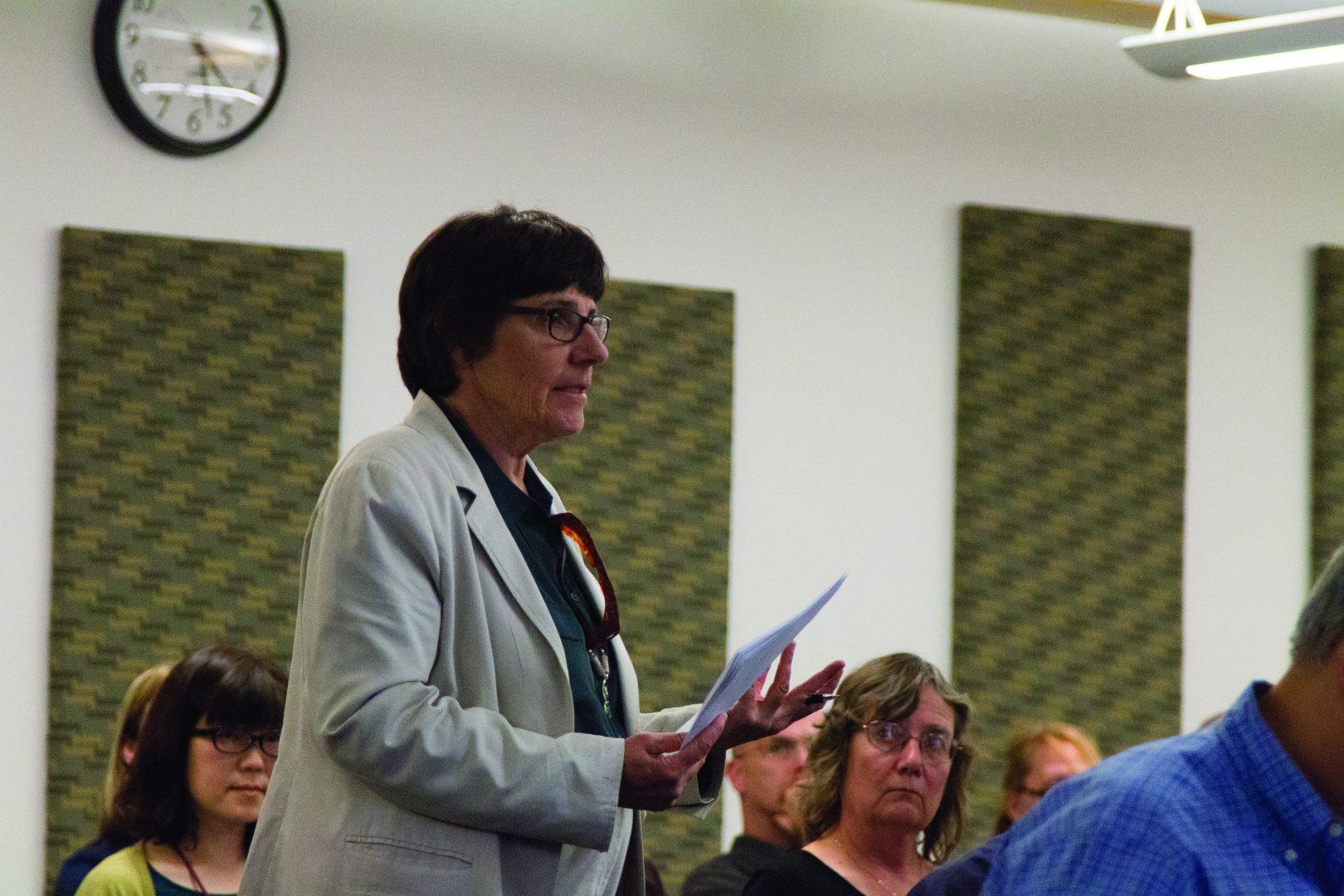Fresno State’s Academic Senate discussed Monday a resolution on teaching associate fee waivers, a possible solution to growing concerns by some that teaching associates were living on “subsistence levels.”
“We have masters students that live in poverty with multiple roommates on ramen noodles,” said biology professor Mamta Rawat. “They provide a valuable service to our undergrad students. They teach lower division courses. They teach service courses. They teach G.E. courses, and we want success for both our undergrad and graduate students.”
Taylor Spalding, a teaching assistant for the biology department, works 30 hours a week at a bar at night, because he is unable to work at a preferred job in his field during the day. He does 20 additional hours of research at Fresno State while taking a full course load to obtain his masters degree. He also teaches three lab courses, Biology 1B and Biology 10.
The only reason he continues to teach Bio 10, Spalding said, was that he was asked to by the university.
“It’s really stressful,” Spalding said. “It means that my grades slip a little bit. I have no time to prepare for teaching. That means that my teaching ability goes down, and that’s a disservice to the student.”
Geology professor Christopher Pluhar said that because graduate students aren’t being paid enough by the university he is finding difficulty filling the five sections of the geology department lab, because he cannot find students willing to teach them.
“We’re having a difficult time recruiting T.A.s. They earn $217 a month per class, so if you work out the hours they work, it’s about $10 an hour,” Pluhar said. “So these people have bachelor’s degrees in that science, and they are getting paid the same as if they were doing retail; some of them do do retail instead. So to me it’s a matter of re-accessing our priorities.”
Pluhar said that, at other campuses, like California State University, Northridge, fees are waived for graduate teaching assistants. Other campuses support their graduate teaching assistants by waiving some or all of their tuition. Fresno State, he said, is an exception.
“At most other CSU’s and most other colleges T.A.s get some kind of tuition remission. They come to campus to get their degree, to do research they are supposed to do and to contribute to the overall academic community as T.A.s,” Pluhar said. ” How is it that we can’t do that, and other schools can?”
Agribusiness professor Lynn Williams said the cost of implementing these waivers range from $110,000-$500,000.
“A half a million dollars is going to have to come from somewhere,” Williams said. “I’ve seen a lot of G.E. courses proposed, so when I hear we can’t teach our G.E. classes, why are we offering them? With how scattered our g.e. program is, are there too many courses offered in the program? I think all those things play into that. I also hear this same lament from my undergrad students. And to pay for such things that we all like and support, something has to be given up. So I’m curious what we are willing to give up to achieve this.”
Rawat conducted research last semester to see the average cost of covering teaching assistant fees in the College of Science and Mathematics. Based on 2012-2013 numbers, she calculated approximately $110,000 per year for tuition fee waivers for 20 students in the college of Science and Mathematics.
“I think the finances are very important, but $120,000-$500,000 is really nothing in the university budget for student success,” Rawat said. “We are spending a lot of money for student success in other things ”” it would help student and faculty success.”
Rawat said that teaching assistants help bring money to the university rather than subtracting from it through lab work, research and grants.
“So really, this is looking forward and trying to help student success and faculty success. It’s a very bold idea,” she said.
Because some teacher’s assistants positions are not being hired, Pluhar said that some departments are forced to hire lecturers, which actually increases the price overall.
“That’s fantastically more expensive than giving them to T.A.s,” Pluhar said. “They would save tremendous amounts of money. So we aren’t talking about just paying a bunch of money out. We would save money by not hiring lecturers to fill those G.E. courses.”
Biology professor Ulrike Muller said that it is important for faculty to adopt teaching assistants ”” saying that they are one of their own.
“We shouldn’t think of our T.A.s as students,” Muller said. “These T.A.s are our colleagues. They are instructors like us. They’ve been fighting for a pay raise as faculty for a long time, because we are underpaid. They are not students from a department that are none of your business. These people are teaching your students. A third or a half of students on campus are taking Bio 10. They are teaching many students and affecting many students. We are teaching our T.A.s to become better teachers. We want to keep them motivated. We want them to be successful.”





imilinaga • Jun 22, 2015 at 1:08 am
wow , this is awesome articel to read , thanks for this post..
fashion wanita darwismarket pakaianfashionpria morofashion fashion pria fashion pria nagaseo
Emily Beals • Mar 13, 2015 at 3:56 pm
Good article; however, it’s important to realize that we’re taking about more than just Bio 10 and the sciences. TAs are teaching many of the lower division GE classes in areas like English, Communications, Kinesiology, Environmental Earth Sciences, Math, Computer Sciences, etc. ~ Emily Beals, English TA and UAW Local 4123 VP.